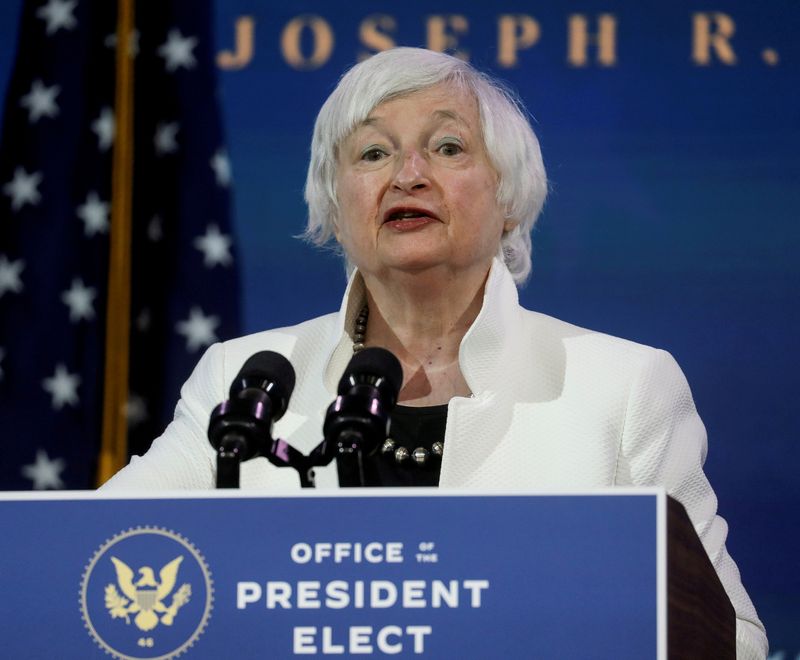WASHINGTON (Reuters) - U.S. Treasury Secretary Janet Yellen and the head of the International Monetary Fund agreed on Tuesday on the need for multilateral solutions to address debt vulnerabilities and other issues facing the global economy, the Treasury Department said.
Yellen's call with IMF Managing Director Kristalina Georgieva was the latest in a series of initial calls with top global finance officials after taking office last week.
"Secretary Yellen conveyed her intention to work closely with the IMF on the priorities of continuing to respond effectively to the COVID-19 pandemic, re-invigorating economic growth to support a strong global recovery, fighting inequality, and forcefully addressing the threat of climate change," Treasury said in a statement.
Georgieva, in a tweet, described the call as "warm & productive."
"We agreed that fighting the pandemic, boosting growth, combating income inequality, and tackling climate change are top priorities, and that global engagement to support low-income countries is essential," Georgieva wrote on Twitter. "2021 is a critical year of action!"
No further details were immediately available.
Yellen plans to hire David Lipton, an economist who served as Georgieva's deputy until February 2020, as a senior adviser, six sources familiar with the matter told Reuters on Tuesday.
Lipton will focus on the U.S. role within the Group of Seven advanced economies and the larger Group of 20 economies in a temporary role, several sources said on condition of anonymity.
Outside experts and global economic officials say they see growing consensus about the need for a new allocation of IMF Special Drawing Rights, a move akin to a central bank printing money, that was blocked by Yellen's predecessor, Steven Mnuchin.
Georgieva had called for such a move early in the pandemic, but the Trump administration blocked it, arguing it would provide very little funding to the countries that needed it most since the drawing rights are distributed in line with each country's shareholding.

The Biden administration has signaled support for a new allocation of SDRs, and legislation to back such a move is working its way through the now Democratic-controlled Congress.